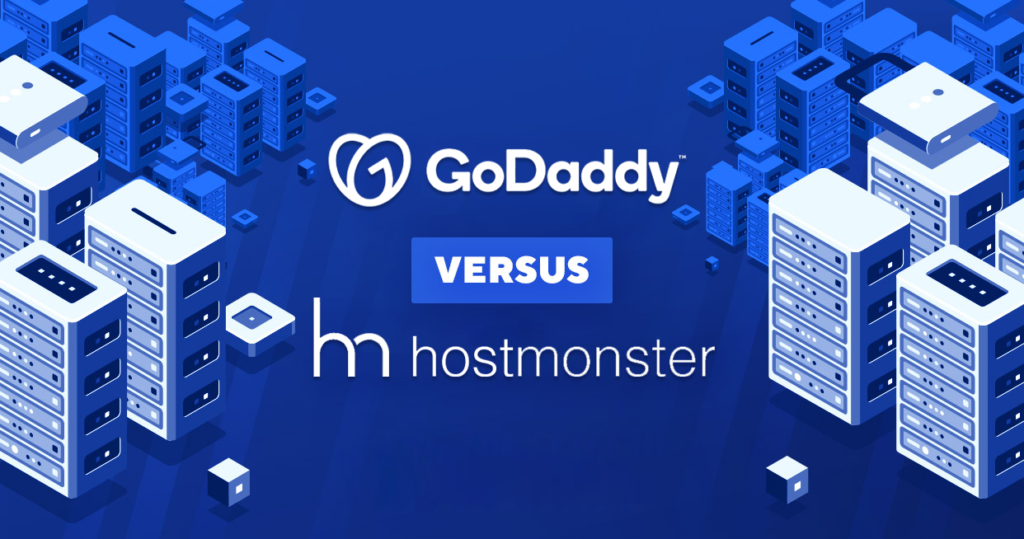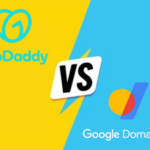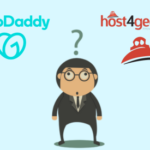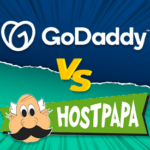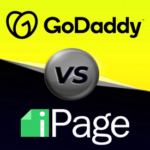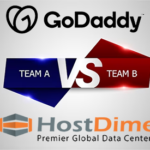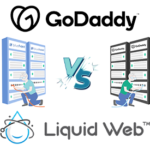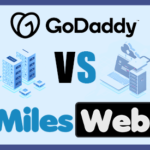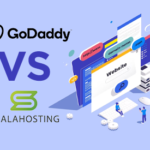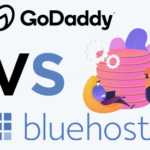This article will make a clear & complete comparison of two highly popular web hosting platforms: HostMonster vs GoDaddy. We recognize that website hosting is as crucial as securing a domain name. To bring your website to life and make it accessible online, hosting it on a server is imperative. Web hosting provides space on a server where you can store your website’s files.
When someone searches for your website, they are automatically directed to the space where it resides. By hosting your website on a server, your customers can reach your online presence.
Opting for a hosting company to handle all the technical aspects can be convenient and cost-effective. With numerous website hosting companies offering various features, selecting the right one to fulfill your needs can be challenging. Today, we aim to simplify this decision-making process.
This article will extensively compare HostMonster vs GoDaddy hosting services, highlighting their differences and similarities. Our in-depth analysis of HostMonster vs GoDaddy will assist you in making an informed choice about the best company for your hosting needs. So, without further delay, let’s delve right in.
Overview of GoDaddy and HostMonster
Established in 1996 under the leadership of Bob Parsons, GoDaddy reigns as the largest domain registrar on the internet. With over ten million websites hosted on its servers, the company is one of the preeminent players in the hosting industry today. In a parallel timeline, HostMonster also began in 1996, earning its status as one of the oldest hosting firms alongside GoDaddy.
Founded by Matt Heaton, the same visionary behind Bluehost, HostMonster successfully adopted the business model of some of the internet’s most prominent hosting providers. In 2015, HostMonster underwent a significant change when it was acquired by EIG (Endurance International Group), a development that some argue may have impacted the quality of HostMonster’s hosting services. The veracity of this claim remains open to exploration.
In several respects, GoDaddy and HostMonster exhibit striking similarities. Both hosting companies offer a comparable range of hosting packages, cater to the same target audience, and share more or less the same selling points. Both hosts extend their offerings to include Shared, VPS (Virtual Private Server), and Dedicated server hosting solutions.
GoDaddy Vs HostMonster
Speed
With our websites already set up, we initiated our speed testing tools to gauge the performance of both hosting providers. We conducted repeated tests to measure the time it takes to receive each host’s first byte of data (TTFB). To ensure impartial results, we took the precaution of deactivating all speed optimization plugins before commencing the tests.
In our findings, GoDaddy exhibited an average TTFB of 515 milliseconds, while HostMonster yielded significantly poorer results, clocking in at an average speed of 841 milliseconds. The distinction between the faster and slower hosts is quite evident. Although GoDaddy’s speed falls short of excellence, it remains within a decent range. In contrast, HostMonster’s performance raises concerns.
This issue is particularly problematic because research has indicated that even a one-second delay can lead to a 7% reduction in conversion rates, a 16% decrease in client satisfaction; and an 11% drop in page views.
Ease of Use
One crucial aspect to consider is the user interface, which plays a pivotal role in the hosting experience. From our perspective, there are only two acceptable answers to this question: cPanel and, to a lesser extent, Plesk.
These interfaces are renowned for their user-friendliness, and the advantage of their widespread usage by various hosts is that transitioning your site from one host to another should be a relatively seamless process.
GoDaddy employs a streamlined and uncluttered rendition of cPanel. Although it incorporates some customizations, it adheres to the familiar layout of standard cPanel, making it quite user-friendly and straightforward for us to navigate. HostMonster also utilizes the traditional cPanel interface, earning both companies high marks.
Features
We will not only dwell on the feature offerings of GoDaddy vs HostMonster since they are remarkably similar, lacking any standout features.
The primary point of differentiation lies in the fact that HostMonster offers free Encrypt SSL certificates for each domain within your account, a convenience that GoDaddy does not offer regarding Let’s Encrypt’s automatic configuration.
GoDaddy offers complimentary SSL certificates on their Ultimate plan (for the first year only) and Maximum plans within their shared hosting services. However, GoDaddy does extend free SSL certificates for dedicated and VPS hosting plans.
It’s worth noting that while you can utilize free Let’s Encrypt SSL certificates with GoDaddy, it requires manual issuance every 90 days and subsequent updates within your control panel. Failure to perform this renewal every 90 days could trigger security warnings in your visitors’ browsers.
Pricing
GoDaddy’s entry-level Shared hosting plan is the Economy plan, priced at $5.99 monthly. It’s important to note that this rate is part of a promotional offer, as the renewal price rises to $8.99. Surprisingly, despite the low introductory cost, the plan offers robust features.
It includes 24/7 support, hosting for a single website, 100GB of storage, a complimentary domain, and unlimited bandwidth and email accounts. Considering these features, it’s evident that unlimited bandwidth, emails, and 100GB of storage make it a compelling value at $5.99.
HostMonster’s basic plan, aptly named the Basic plan, offers one website, 50GB of storage, unmetered bandwidth, one domain, 5 email accounts, and 100MB of email storage. Currently priced at $4.95 per month (with potential discounts available for significant savings), it renews at $9.49. HostMonster’s plan impressively delivers unmetered bandwidth and 50GB of storage, typically premium features.
GoDaddy vs HostMonster, Both hosting providers offer affordability and strong plan specifications right from the start. In our assessment, GoDaddy takes the lead due to its larger storage allocation.
Conclusion
Specific features and qualities are essential when selecting a hosting platform for your eCommerce venture. Achieving optimal speed and uptime is paramount to securing a high ranking in search engine results pages (SERPs). These elements are equally vital for ensuring an enhanced end-user experience.
In this review of GoDaddty vs HostMonster, we have presented a comprehensive comparison of both hosting services to assist you in making an informed decision. Below is a summary of all the features offered by these websites for your quick reference.


